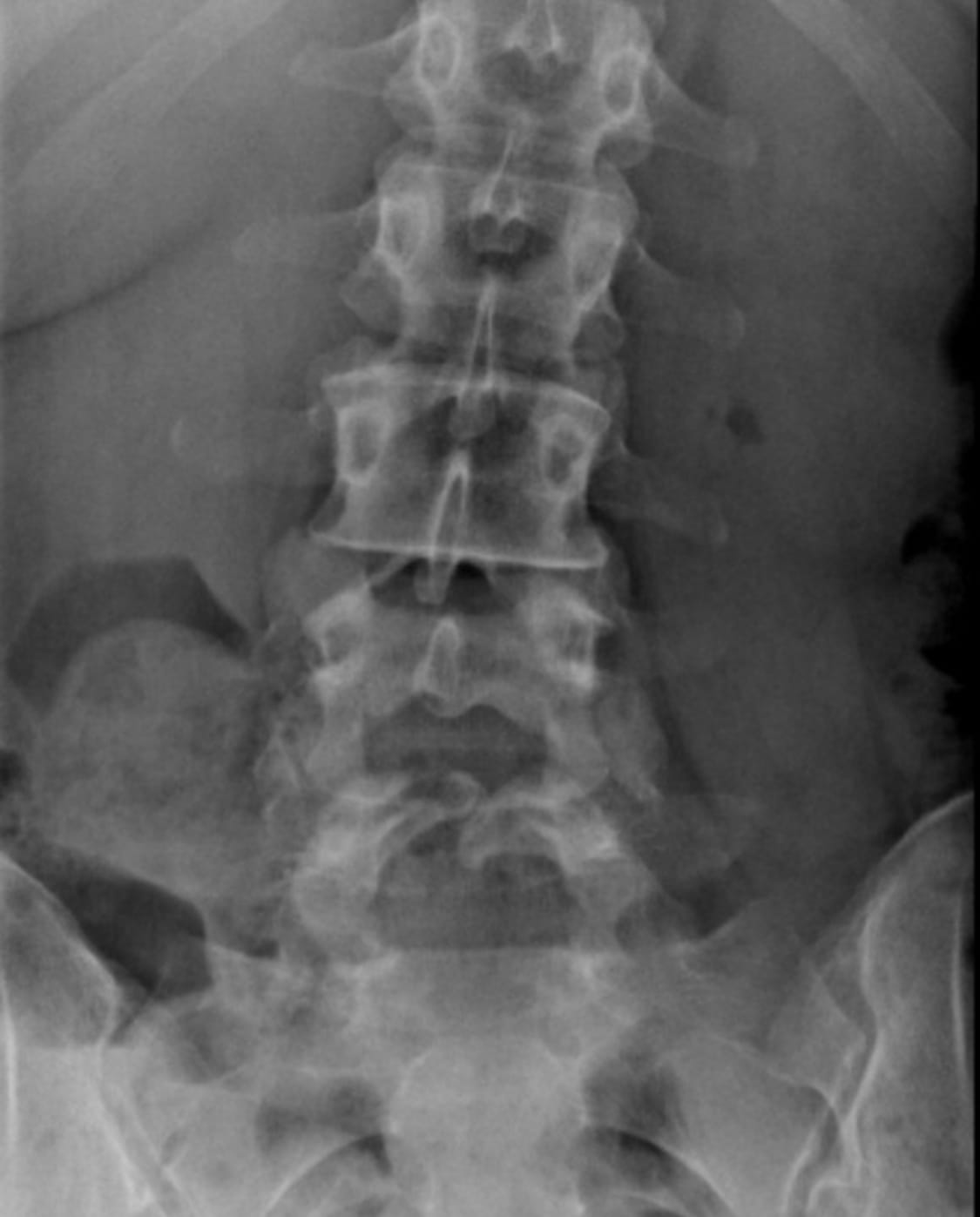We Just Weren't Made For These Times

A few weeks ago I went to see my favorite doctor. I have quite a few great doctors, so this is a higher bar than you might imagine it to be. For those who don't know, I have a chronic illness. The details are unimportant but it does require me to get pain management treatment about twice a year in the form of radiofrequency ablation in both my cervical (neck) and lumbar (lower back) spine. This is performed by the favorite doctor, and it requires four sessions each time. If you are squeamish about needles, don't look it up, but for those who are interested, it's pretty interesting. He inserts needles into one side of the spine during a visit – four visits spaced multiple weeks apart starting with left cervical, then right, left lumbar, then right – and sends thermal waves (I think? if he reads this he will correct me, have no fear) to the nerves. One time I asked if he was frying the nerves and he responded, "It's more like a gentle sous-vide." The end result is a temporary disconnect between the nerves in my spine and the pain processing center of my brain. These procedures combined with some medications and a lot of of work on my part via physical therapy and through various forms of exercise mean my brain gets a little a break from a constant stream of distress from various body parts. Highly recommend!
Now you can imagine: I go to his office, I lie face down on a table, he sticks giant needles into me and zaps my muscles and nerves, and the entire time we engage in spirited debate about, say, the state of the world or about the fact that I sent him and his staff a holiday gift in the form of chocolate and caramel-covered pretzels only to find out that he hoarded them all in his office. He is the best. I love our visits, and he cannot ever retire or move away or die suddenly.
So the last time I went, we talked a little about my writing and a lot about the internet. I told him I wanted to find ways to rethink how we structure our social spaces online, but there's a lot that makes doing this tricky, obviously. He brought up the issue of context and how the anonymity of some users makes it harder for others to know if their opinions are worth considering or if they have valid or verifiable information. We also talked about what encourages people to behave online in ways they might not behave face to face, like anonymity.
When I said that I think we need to take a cue from Gen Z and spend more time in smaller, less public online spaces, he wondered whether, in those spaces, people should be allowed to be anonymous. Or maybe there should be a tiered system for how not-anonymous you were willing to be. But I responded that while online anonymity can be problematic, it's also highly valuable for a lot of people, even necessary. Verifying identity also comes with a significant number of challenges, and it doesn't actually solve the problems we're talking about here. Remember the many controversies over Facebook requiring a verified identity?
All of this got me thinking about the types of context that are valuable, even necessary for engaging with each other and with the world in healthy ways, whether online or off. Then, over this past week, I had a few Not Great experiences online – in particular some interactions on Bluesky – that really highlighted the many ways context matters, as well as the many ways that anonymity is no longer necessary for people to be their worst selves online. I mentioned it to my friend Erin Kissane, who responded with "context collider!" which is a phrase so delightful that I thought, what the hell, let's write about all of this and see where that gets us.
A lot has been written on "context collapse" by plenty of people, including the well-known and widely-beloved danah boyd. (The article is here but I can't read it because I haven't had academic journal access since I finished my PhD and I'm sorry but paying $37.50 for 24 hours of access to read and download is bonkers. And that's a bargain compared to the other article I wanted to read that would have cost me $56! This newsletter, if you pay for it, is an absolute steal in comparison!) For the uninitiated, context collapse is the ways in which social media collapses many social contexts into one, so that you are essentially presenting the same self to multiple audiences, even though you might have presented different versions of yourself to these different audiences if you were in person or in an otherwise more restricted or controlled environment. This gets into a little of the Erving Goffman presentation of the self stuff I wrote about a few months ago, plus with the added complexities of the ways social media exposes you to audiences you might not even realize you'll be exposed to.

But that's all for your edification because right now I'm not so much interested in context collapse as I am in the kind of context my doctor was talking about, as well as in the ways context is constantly fragmented online. I'm curious about how we get decontextualized too. Basically: What information do you need to decide whether you can trust an opinion? What about a fact? What do you need to know whether you should respond or take someone seriously, have a conversation, engage, assume good faith or intention? How do you find that information? How much time do you spend on this? Do you do it every time? What shortcuts do you have, if any, to help you navigate this?
I am on the record in various places in my conviction that the tools we build for online social interaction are frequently, at best, rudimentary. They're proxies for what we really want or need. A tool like "mute" on social media is a blunt force object. If I follow someone, I usually want to modulate rather than mute them, adjust the frequency or concentration or volume of their posts. I mean, in person I do not have to engage with every single other person on their terms. I am not subjected to everyone whenever they want to communicate something, whether to me or wholly unrelated to me. But on social media, I have no choice.
Plus, on social media, everything is inherently fragmented. It's not simply that contexts are collapsed or that they collide in unexpected ways. It's that anyone can come in at any point during an interaction and see only one branch of a conversation, or one standalone comment decontextualized, and use it as an example or hold you up as a sort of avatar of something they're upset about in an entirely different context. It's like when you make a whole Powerpoint deck at work with a lot of important information in it, and then one person in leadership takes a single slide, pulls it out of context, and uses it somewhere to support a totally different point. We're all creating entirely new contexts for each other, without fully being able or sometimes willing to understand the original content. And that's partly by design!
After all, how much work do you have to do to figure out the context of anyone who shows up in one of your feeds with a limited set of tools? All you have is bunch of other content this person has shared, hopefully a link to a website, and a username you could search for more broadly if you really want. You might have a photo or you might have nothing. You might be dealing with a bot for all you know.
Almost 15 years ago, when I was a baby user researcher at a web design shop, I worked on a project for something our client called a "serendipity engine." This is a much lovelier name than algorithm or "For You Page," but it is essentially the same concept. Given all the connections that exist between words and articles and the people who read both, what kinds of content could we surface for you, a user, that you might not otherwise stumble across on your own? Or that you might, but not if we could find it for you first. The focus on serendipity was intentional, because rather than an engine that sort of sucks you in and makes you feel a little like you can't escape, it gives you a sense of delight, like running into a friend in an unexpected moment or discovering a really cool shop on a street you'd somehow never turned down.

This engine never materialized but I have thought about and used the research I did repeatedly since then. I talked to people about how they found news articles and other stuff to read. This was during Twitter's true heyday, the golden years before it all got ugly, so a lot of people told me about how they discovered content on Twitter. They developed what I called "trust networks," which is a little like status networks in social network analysis. The more you trust a source of referrals, the more likely you are to engage with that source's recommendations, and the more likely you are to find other trustworthy sources through that original source – which in turn increases the value of that original source. If they liked The New Yorker, and The New Yorker recommended something, they were more likely to trust that recommendation. Or let's say they followed me, and I had great taste (which I do). If I recommended they follow my friend Erin, mentioned above, and then they found great stuff through her recommendations, it's like a boost for all of us and for our connections. Like my pops used to say when I was a kid: Trust takes a long time to develop and a short time to break.
What do you need to do this with humans? You need context. You need to know something about me or about The New Yorker. That's why when a rando busts into your mentions with a link, you're like, who the hell is this and why would I click on that? The bigger things get, the more fragmented and fractured our contexts, the more randos and the more we're like, who do I trust? Verifiable identity isn't, in my view, the most useful tool for creating context. You don't have to have someone's actual identity to learn to trust them, either. One of the most trusted people I know on the internet is a user named Darth who is represented by the image of a red panda and whom very few people actually know, so their identity is a mystery. And yet, over time, hundreds of thousands of people have learned to trust and adore them. Similarly, actual real people with their names and photos are now willing to post the ugliest, most racist, most homophobic shit imaginable, and to say it in public while being filmed. People don't necessarily hide behind anonymity in the same way they did before, or for the same reasons.
The context we need is different online. If you are The New Yorker, then yes, I need to know that you are really The New Yorker, so I can know that what you are sharing is real and trustworthy. You are a reputable source, and if someone is impersonating you to share false information, that's really bad. But if you are a scholar who knows everything about Trollope, or a tennis genius, do I need to care if your name on Reddit is "TonyTisTooSexy" or your photo is a blobfish? Maybe not! Maybe what I need is enough context about your expertise to be able to trust you in this context. Sometimes that context, that trust, builds over time. We spend enough time in a subreddit together, or I see you reshared into my feed frequently and you've been pretty smart, so I follow you. But what if there were other tools to help me more quickly assess you in this specific context, where you will for now be someone I talk to about The Palliser novels. Then, if one day I need to know whether you're someone I'd want to sit next to at dinner or even invite to my house, we can incorporate those tools. Or if I realize you are sharing information that is vital to my health or the security of our nation, I will want to verify you and your "facts" in a more profound way. Then I might need to know your offline identity. See also: Needing to know which Groypers are now running DOGE.
This feels important in the negative as much as it does in the positive. By which I mean: If someone responds to something you said that was taken out of context, and they immediately assume the worst or bad intent, what happens is the absolute opposite of building trust. It happens immediately and intensely, and unlike when someone does that in person – singles you out, treats you like a representative of your gender, ethnicity, religion – it's often immediately amplified with other people piling on. (Obviously that can happen in person too, and in more immediately unsettling or outright dangerous ways, but usually not at the scale the internet affords.) Plus you're stuck staring at it. The moment does not pass, it just sits there in front of you. It's this splintering experience that in a way almost decontextualizes you from yourself. The feeling you get in the moment when you think, wait am I an asshole? or hey, to hell with this person and you immediately fire off without stopping first to take stock of what you feel and why you feel it. If nothing else, it certainly dehumanizes you.
Recently I wrote about the sheer firehose of information that overloads us online and stretches our faculties to the limit. The more I think about context, the more I think this splintering of context, of meaning, of the self amplifies that overwhelm. It's almost logarithmic (I think, I did not get a PhD in math). How many fractured conversations are you having or following or ignoring at any one time? How often are you yourself being ignored or splintered? It's not just the amount of content we have to vet and process, it's the contexts in which we have to do this, and the contexts we have to develop and maintain for identifying who to trust, what to give credence to, and whom we can ignore. Otherwise we rely on the most rudimentary tools, like "ignore most everyone" or "mute" or "delete social media entirely." Where is the gentle sous-vide that quiets the pain signal for a while, so our brains can process something else besides the screaming?
Until next Wednesday!
Lx
Leah Reich | Meets Most Newsletter
Join the newsletter to receive the latest updates in your inbox.
